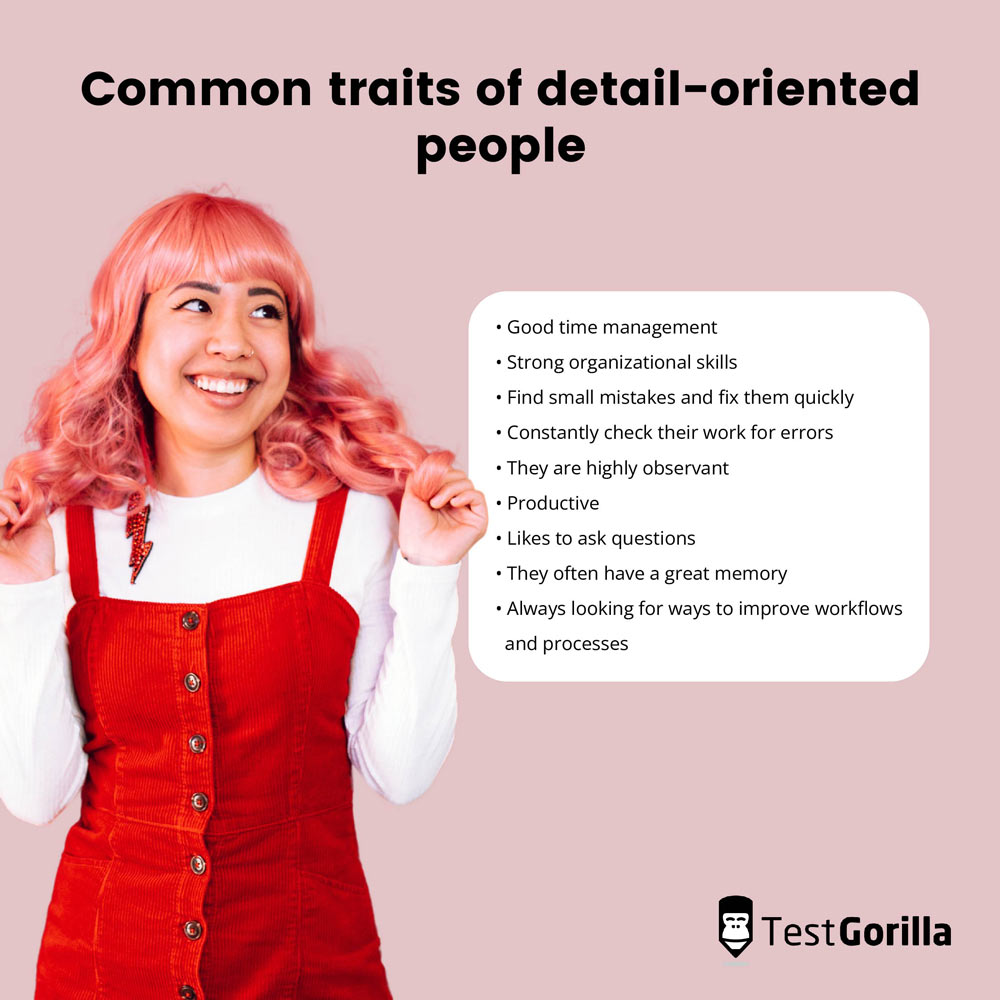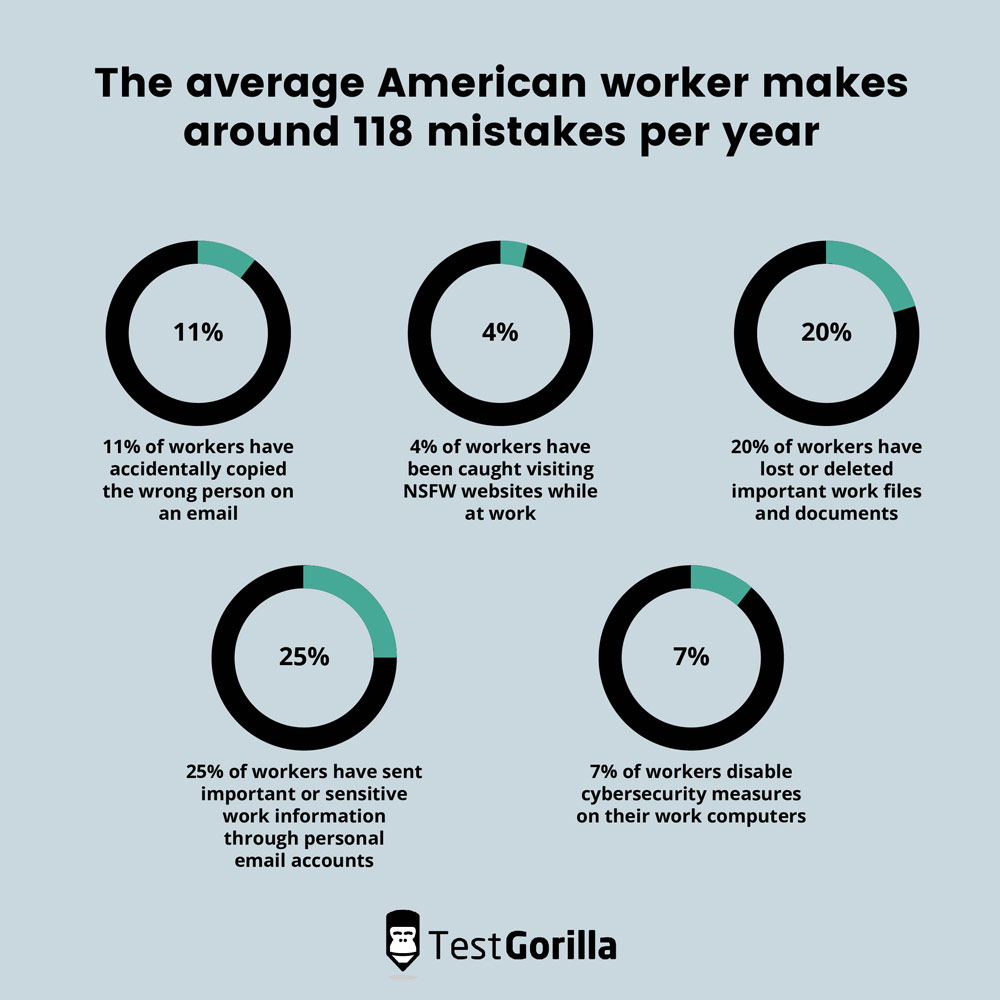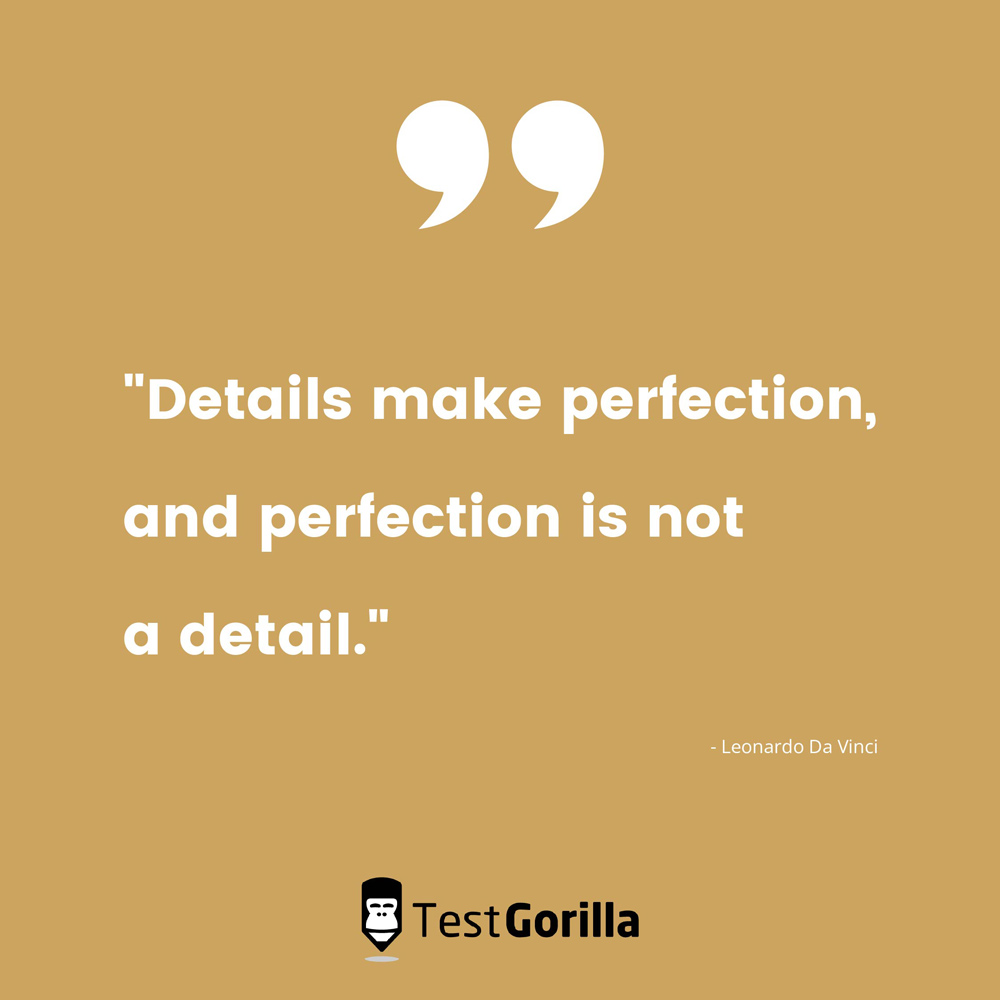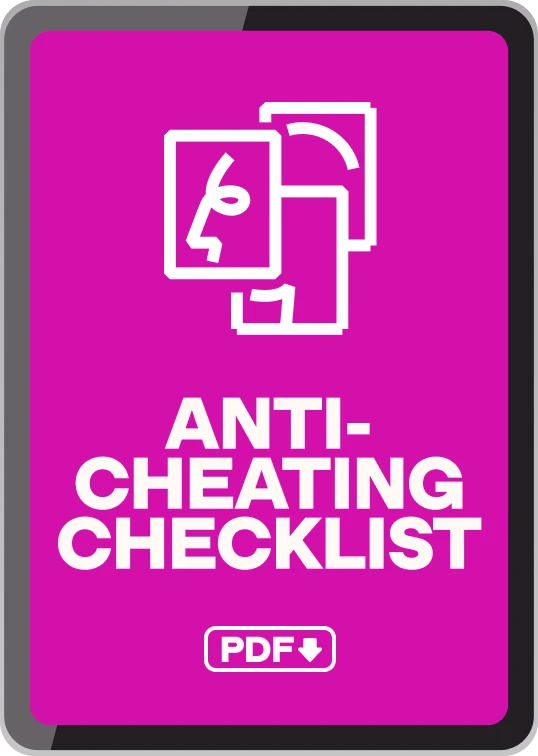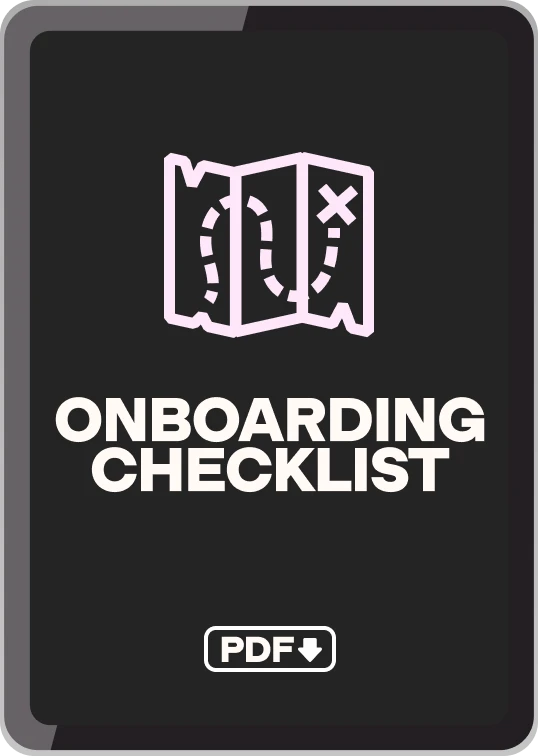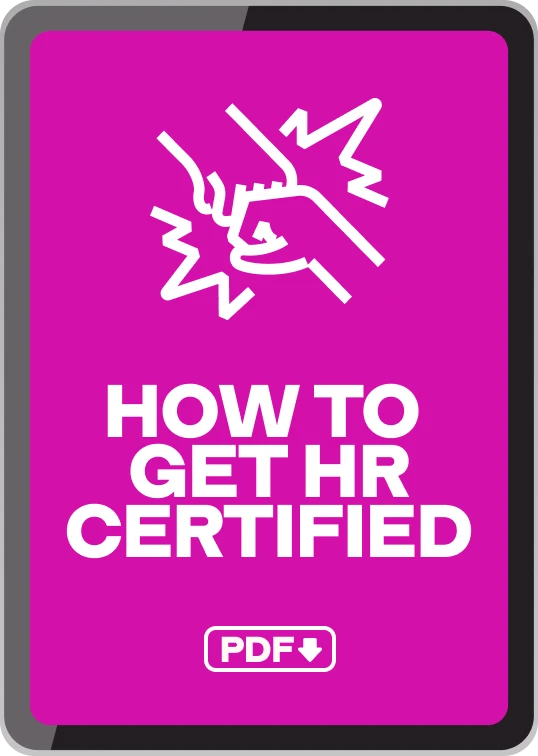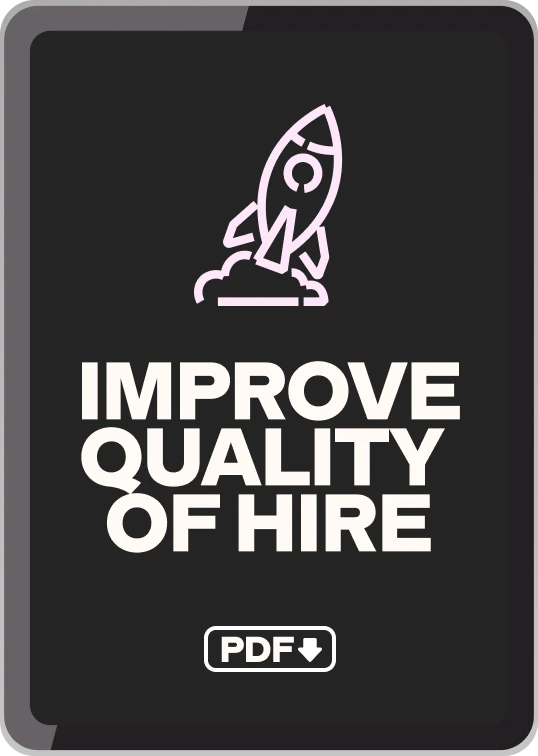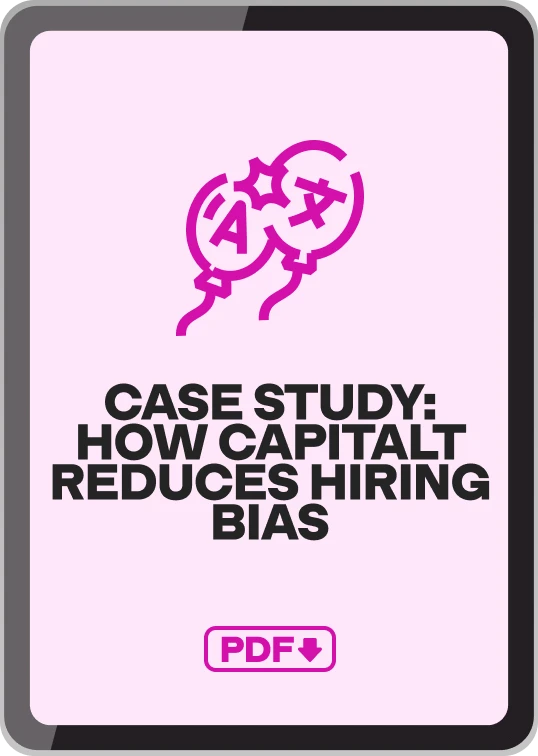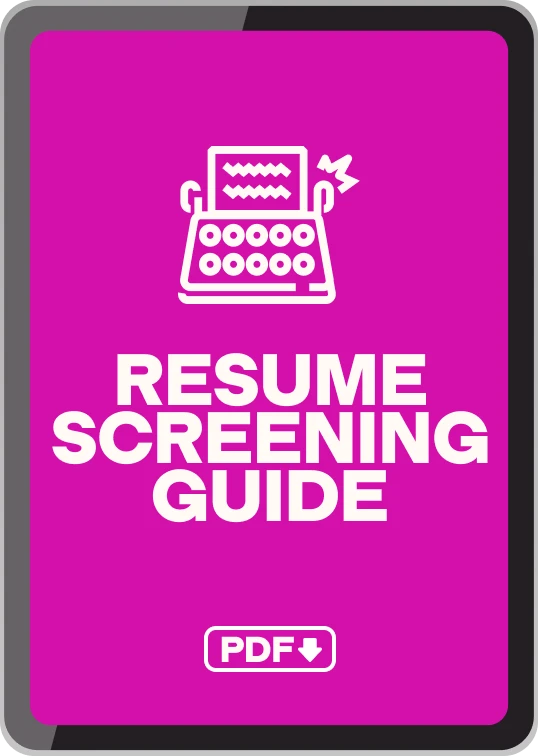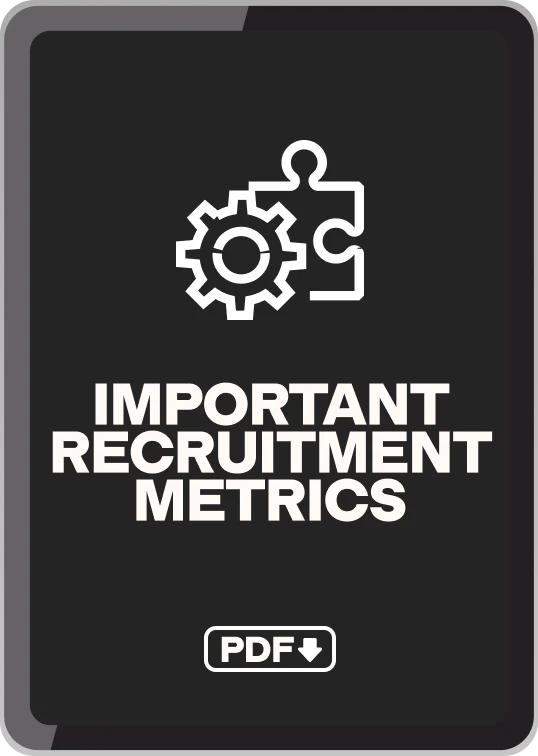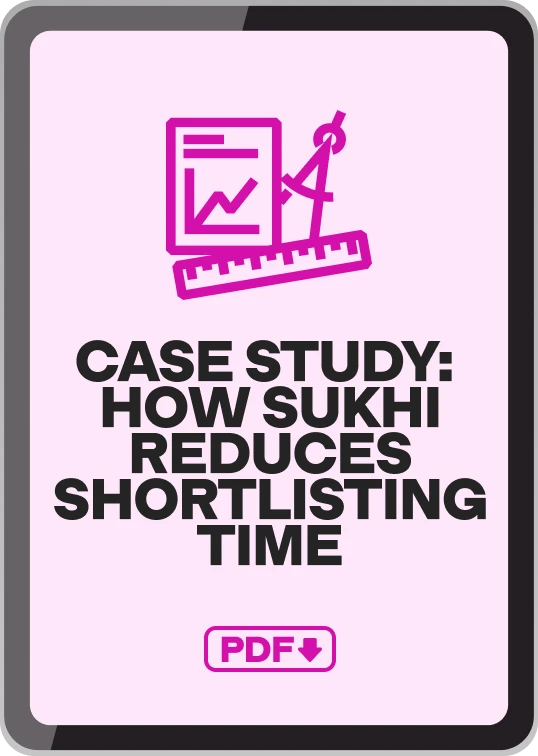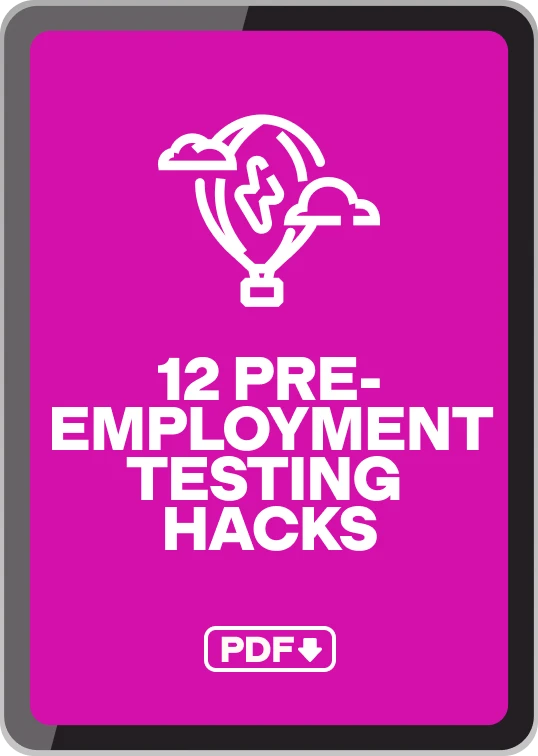9 Job roles that require a strong attention to detail
People who have good attention to detail notice things that others often don’t. They are the people who can spot whether an actor’s shoes or clothes have changed subtly in style or color from one scene to the next; they are the continuity editor’s worst nightmare.
However, these detail-oriented folks are a dream come true for many employers, as their eagle eyes spot even tiny mistakes. They are meticulous and thorough, which makes them ideal for many job roles, and we’re going to look at some of them today.
Later, we’re going to show you how you can discover the ideal candidates with TestGorilla’s Attention to Detail test, as well as how to build a custom pre-employment assessment to use at the start of your hiring process.
Table of contents
Attention to detail: Key job roles
There are two main types of attention to detail:
Visual: The ability to process visual information and spot errors and small details in visual material, including in designs or images
Textual: Able to find errors and inconsistencies in textual material, such as written documents, lists, and tables
Some job roles require employees to use both types of attention to detail, although others will need someone who leans more towards one specific type of detail orientation.
1. Computer programmer
Computer code is only as good as the person who wrote it, and computers simply do what they are told to do. A developer needs to write accurate, clean code to ensure the program runs smoothly.
If they don’t possess a good enough attention to detail, their code will end up being full of mistakes, which will end up taking time and money to fix. In the worst-case scenario, programming mistakes have ended up costing lives.
2. Quality assurance and compliance
People in quality assurance or compliance roles have to test products and standards rigorously to ensure they are fit for purpose or that best practices are being followed.
They must be meticulous and look at every detail, no matter how small. The public’s health and safety may depend on strong attention to detail, so it can’t be left to chance in these roles. Poor quality assurance testing in a business can also result in a loss of money and reputation.
3. Accountant/ bookkeeper
Uber had to admit to a costly accounting blunder in 2017 as a result of an arithmetic error, and they are not the only big-name company to suffer because of accounting errors and mismanagement.
Accountants and bookkeepers process many numbers every day, so diligent attention to detail is a must for these professions. Although it’s just one of the essential job skills for a bookkeeper or accountant, it’s arguably the most important.
4. Proofreader/editor
According to one published newspaper article, “The human brian is still evolving.” Hmm, wait, surely they meant “brain”? Perhaps the proofreader and editor’s “brian” was still evolving too if they let that typo get past them.
There are many real and hilarious examples of blunders with the published word out there, but proofreaders and editors who make mistakes like that can damage an organization’s reputation.
It’s easy to make a typo, and we’ve all done it many times. However, it’s part of an editor or proofreader’s job to spot and correct them before the text goes out in the public domain.
5. Help desk technician
Help desk technicians assist customers to resolve their technical problems. Because this is mostly done over email, chat, or phone, there is a lot of troubleshooting involved, especially when the customer isn’t knowledgeable about the product.
A help desk technician must be very detail-oriented to make sure they have asked all the right questions and have the correct information. They also need the ability to think logically and solve problems quickly to keep customers happy.
6. Personal assistant/virtual assistant
These job roles demand a lot of attention to detail. As well as being detail-oriented, personal assistants/virtual assistants must have many technical and soft skills, from managing schedules to organizing spreadsheets to communicating with team members and solving problems.
Many employers hire assistants to take care of the small details so they can spend time on other things. This means they must be able to spot any mistakes and fix them quickly.
7. Data analyst/data scientist
Data analysis involves working with huge amounts of data from different sources. Because organizations rely on the final results of the data analysis to make decisions, people who work as data scientists or analysts must be accurate and meticulous when it comes to the smallest details.
If a data analyst makes errors, the results given to the stakeholders may not be accurate, which could lead to them making a bad or costly decision based on the inaccurate data.
8. Customer service/customer care
To be effective in a customer care position, employees should have at least the top 7 customer service skills.
They need to do all kinds of detailed tasks, from troubleshooting to tracking down mistakes with orders or billing. They also need to interact with customers, so being able to memorize details and having great interpersonal skills will help them deliver fantastic service.
9. Translator/interpreter
Because translators/interpreters convert written or verbal information from one language to another one, they must be accurate. You’ve probably heard the phrase “lost in translation.” If translators are sloppy and use the wrong words, then it could change the meaning of what was said or written.
There is a very real risk that bad word choices from an interpreter could cause serious offense or even harm. One famous example of this was when Nikita Khrushchev’s speech at the Polish Embassy in Moscow nearly started nuclear armageddon because of mistranslation.
This was when the Cold War was at its height, and he was interpreted as saying (to the United States and the western countries) “We will bury you.” Several NATO member nation envoys stormed out of the room in protest. Turns out that what Nikita really said was “We will outlast you.”
That interpreter could certainly have used an attention to detail test.
How does an Attention to Detail test work?
At TestGorilla, we have two distinct Attention to Detail tests, based on the two types we mentioned earlier:
Some job roles will require more emphasis on either visual or textual detail, such as textual for a proofreader, or visual for a graphic designer. Other roles will require a mixture of both, such as a personal assistant/virtual assistant or quality assurance/ quality control.
Attention to Detail test (Visual)
TestGorilla’s Attention to Detail test (Visual) evaluates candidates on their ability to find differences between images and to match identical images. Noticing patterns and small details is an important part of visual attention to detail, and applicants are tested on these too.
The top scorers on this test have proved they can accurately process visual information. They can spot small errors and perceive the tiniest details, and carefully consider the visual information that is given to them.
Attention to Detail test (Textual)
This Attention to Detail test evaluates candidates’ skills in processing textual information accurately. Applicants are given tasks requiring them to match or filter information, check the consistency of the information, and compare statements.
Candidates with a high level of alertness will correctly identify the errors, omissions and inconsistencies in the information presented to them. Those who excel at the Attention to Detail test (Textual) are thorough in their work and consider everything before coming to a conclusion, and this is also a good test to check applicants’ general analytical skills.
How to use TestGorilla’s Attention to Detail test as part of a pre-employment assessment
For a more balanced view of an applicant, a pre-employment assessment is an important tool to use right at the start of your hiring process. Although the Attention to Detail test is a valuable tool, we recommend giving it as part of a TestGorilla pre-employment assessment.
TestGorilla’s assessments are made up of five tests, which are taken in one sitting by the candidates. If you want your applicants to take the Attention to Detail test, for instance, you can add four more tests to make up an assessment that suits you. The tests can be a mixture of role-specific skills tests, personality tests, a culture add test, or soft skills tests.
The aim is to give you a deeper understanding of the candidates’ technical skills, how they manage their time, motivation levels, and their ability to communicate. You can also discover whether they will align well with your organization’s values by using our innovative Culture Add test.
Our assessments can be adapted with custom questions that you choose, and in the Culture Add test, the questions are based on a questionnaire that you fill out.
You wouldn’t want to give the same tests for all job roles, and the beauty of our assessments is that it’s simple to mix and match tests in separate assessments according to the job requirements.
If you’re not sure of which test types to use, then you may find this blog post about the seven test types to include for a strong assessment helpful. You can also browse our extensive test library, where it’s easy to search by test type, job role, or by using the search box.
Skills-based assessments are the key to successful hires
Attention to detail is important in every job role, but it’s more crucial in some jobs than others. Those who deal with health, safety, textual, visual, and numerical information need to be detail-oriented to ensure their work is accurate. This helps ensure that no one gets hurt, and your organization doesn’t end up with losses and a ruined reputation.
It’s not always easy to assess such a broad range of skills that go into making up attention to detail. However, being able to evaluate candidates with pre-employment assessments that include an attention to detail test to ensure they perform to a high standard is essential.
TestGorilla’s Attention to Detail test, when used as part of a pre-employment assessment, can help you find those candidates who excel in this area. Skills-based testing is a great way of reducing time-to-hire and it uses data-driven results to help you make those hiring decisions.
Check out our pricing plans and find one to suit your organization, or sign up for a free TestGorilla account today to start building your assessments. If you would like more information on how TestGorilla can help with your hiring needs, book a free live demo with our sales team now.
Related posts
You've scrolled this far
Why not try TestGorilla for free, and see what happens when you put skills first.
Latest posts
The best advice on pre-employment testing, in your inbox.
No spam. Unsubscribe at any time.

Hire the best. No bias. No stress.
Our screening tests identify the best candidates and make your hiring decisions faster, easier, and bias-free.
Free resources
This checklist covers key features you should look for when choosing a skills testing platform
This resource will help you develop an onboarding checklist for new hires.
How to assess your candidates' attention to detail.
Learn how to get human resources certified through HRCI or SHRM.
Learn how you can improve the level of talent at your company.
Learn how CapitalT reduced hiring bias with online skills assessments.
Learn how to make the resume process more efficient and more effective.
Improve your hiring strategy with these 7 critical recruitment metrics.
Learn how Sukhi decreased time spent reviewing resumes by 83%!
Hire more efficiently with these hacks that 99% of recruiters aren't using.
Make a business case for diversity and inclusion initiatives with this data.

